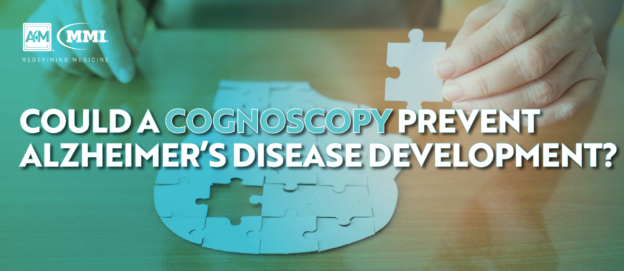Alzheimer’s disease is a complex, multi-faceted condition affecting nearly 47 million people worldwide, with 5.8 million Americans currently living with dementia in 2019. Already one of the leading causes of death in the United Kingdom, the disease is expected to rise to the forefront in the U.S. as heart disease and cancer treatments continue to improve. According to the 2019 Alzheimer’s Disease Facts and Figures report, there has been an increase of 145% in Alzheimer’s related deaths between 2000 and 2017.
An estimated 75 million Americans are predisposed to developing Alzheimer’s disease, and this number is only expected to grow. New research suggests that the development of Alzheimer’s begins 20 or more years before any noticeable symptoms arise, allowing for a substantial window of time for intervention and prevention. With advancing technology and further research, there is potential to decrease the prevalence of Alzheimer’s to a much lower level by interceding at earlier stages than thought possible before.
Cognoscopy
Of widely discussed preventative measures, Dr. Dale Bredesen’s coined procedure, the cognoscopy, can prove efficacious at stopping Alzheimer’s development in its tracks. Developed by Dr. Bredesen, author of the book The End of Alzheimer’s, the cognoscopy is a series of screening tests that aim to assess the risk of Alzheimer’s development and identify the factors contributing to an individual’s cognitive decline to correct those abnormalities. Blood tests, genetic tests, mental status exams, and MRIs are used to detect cognitive decline in its earliest stages, determine potential causes and prevent its progression.
After decades of researching the disease, Dr. Bredesen came to the conclusion that there are 36 identifiable causes, or “holes” of Alzheimer’s that must be addressed holistically in order to provide successful treatment and prevention. Previously believed to be irreversible, Dr. Bredesen suggests that the disease may be both reversed and prevented through the repair and proper maintenance of these 36 potential issues.
According to Dr. Bredesen’s research, all adults 45 or older, especially those with close relatives suffering from Alzheimer’s disease, should be recommended a cognoscopy to determine their risk for development as well as to ensure preventative treatment is implemented as early as possible. With these screening tests to detect early signs of the disease, earlier diagnosis will be made possible and with it, better outcomes for patients.
Other Preventative Measures
Although cognoscopy has yet to be acknowledged as an approved Alzheimer’s detection procedure, the evidence strongly suggests that early detection of cognitive decline leads to better prognosis in patients. Other methods of optimizing brain health should be recommended to all individuals, and especially patients at risk of Alzheimer’s development.
Exercise is the number one lifestyle habit for increasing brain function, and should be encouraged in all patients looking to improve brain health. Adhering to an anti-inflammatory diet has proven to improve cognitive performance, as research suggests that inflammation compromises proper blood flow and undermines brain function. Furthermore, eating healthy fats daily, including omega-3 fatty acids which have been positively associated with cognitive function, has been shown to improve the health of brain cell membranes. Avoiding artificial sweeteners, gluten, refined and processed foods, and other neurotoxic foods has proven to lower the risk of Alzheimer’s development.
Research in the field of Alzheimer’s disease treatment is promising; the identification of biomarkers for Alzheimer’s is enabling earlier detection of unnoticeable symptoms and accelerating the development of new therapies. While studies on the effects of cognoscopy on the incidence and outcomes of the disease are limited, implementing certain lifestyle choices such as physical activity and diet may help support brain health and reduce the risk of Alzheimer’s until further research is conducted.

